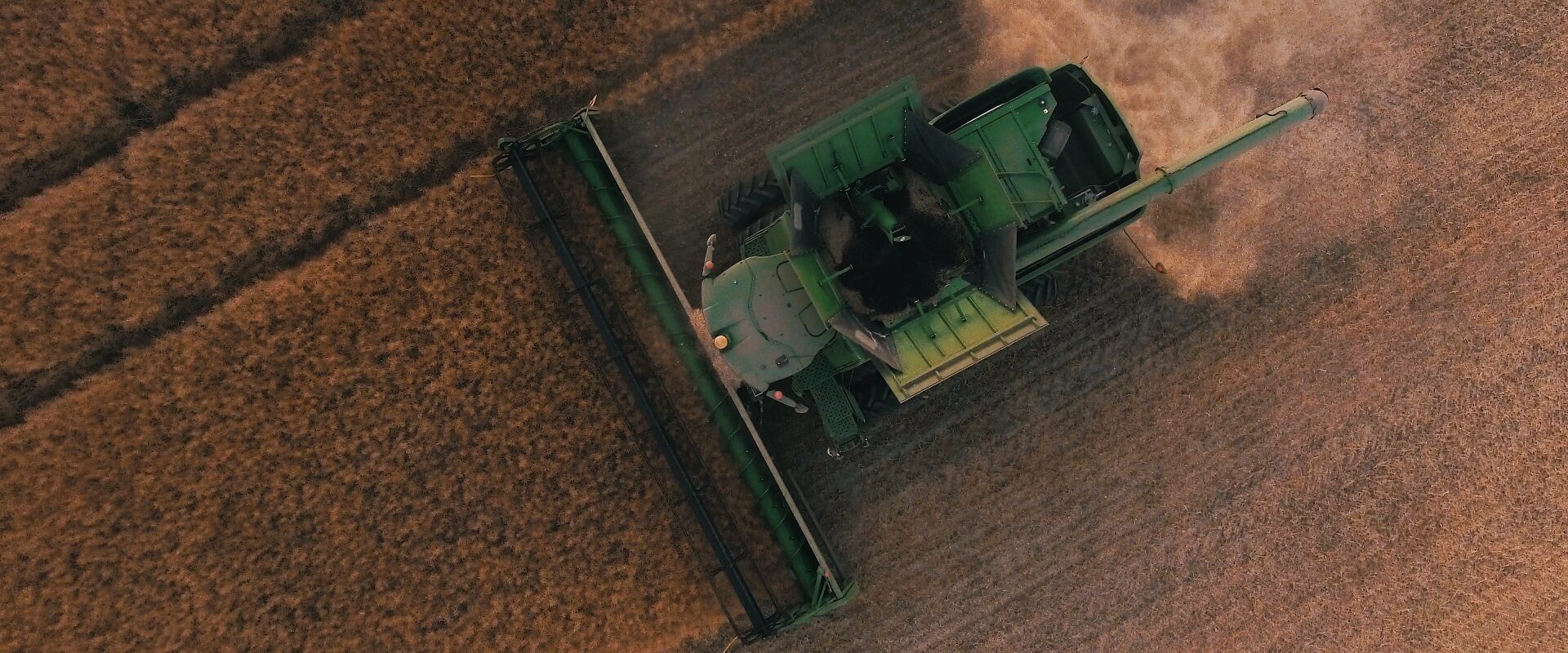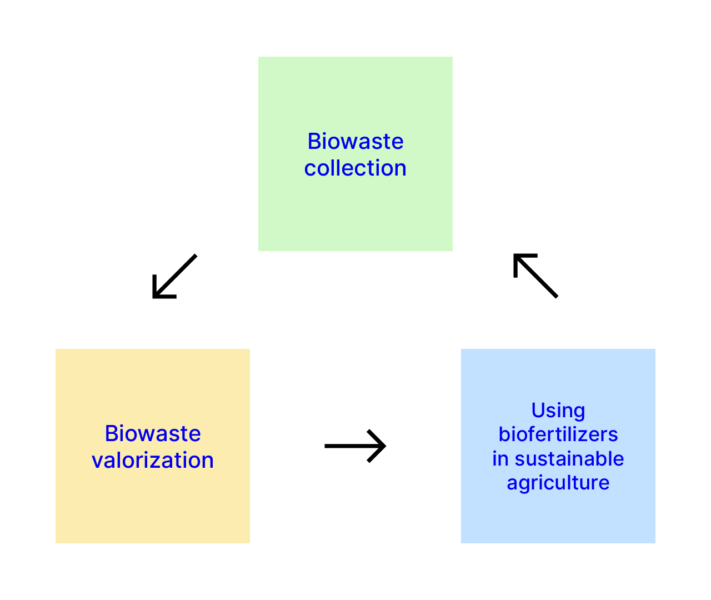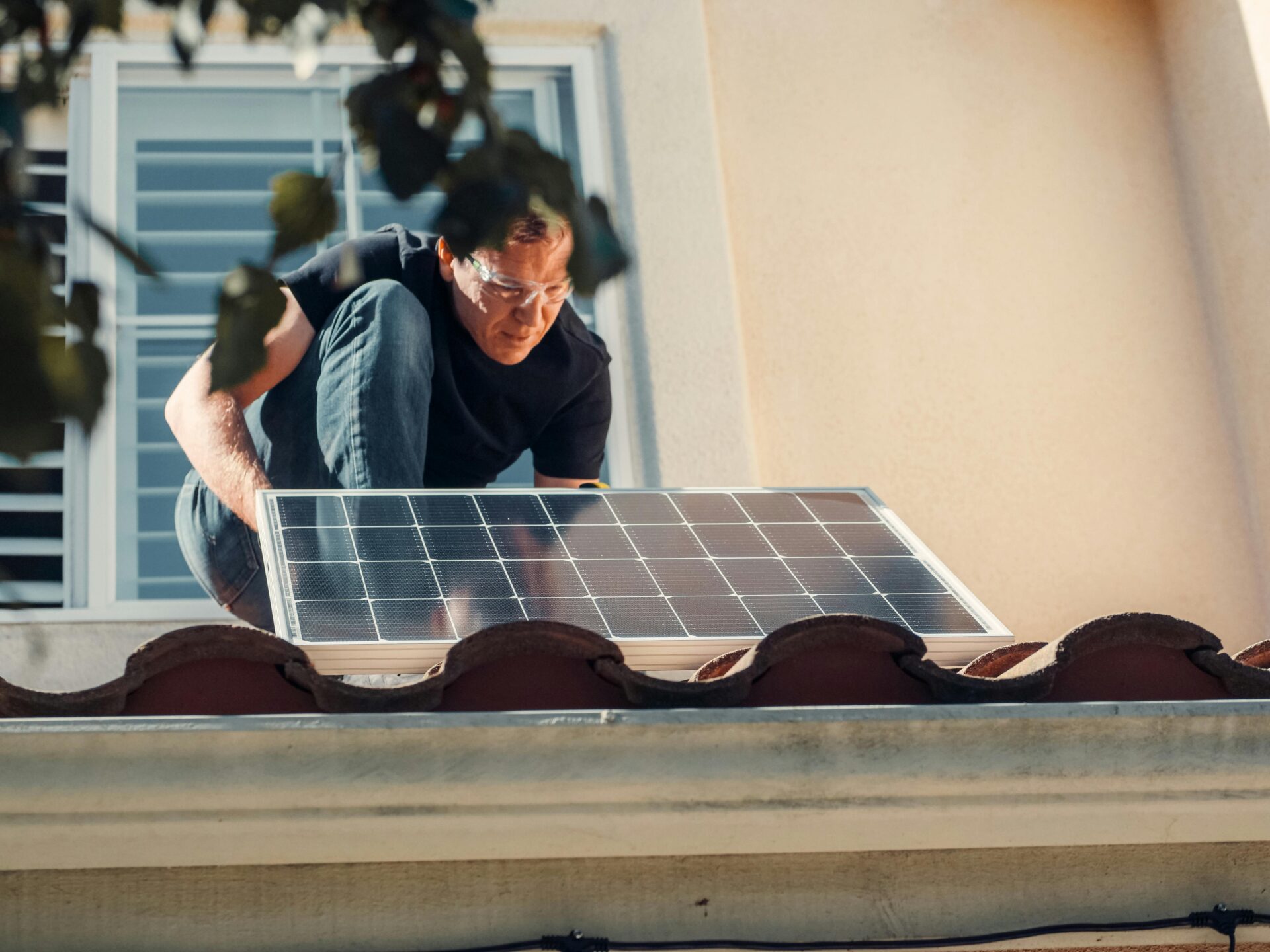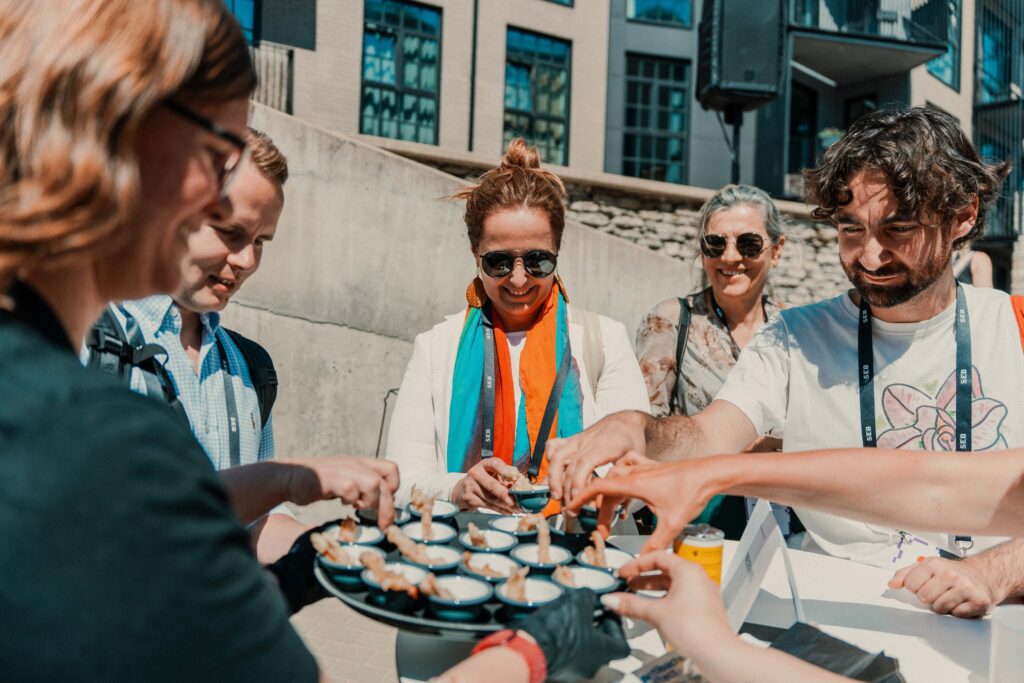Current food production practices are unsustainable, creating a cycle of soil depletion and heavy reliance on synthetic chemicals. Despite vast amounts of biowaste, this valuable resource remains underutilized, fueling environmental degradation and nutritional shortfalls. While governments recognize the urgency, they often lack the infrastructure needed to support effective biowaste recovery and reuse.
NutriLoop
Using biowaste in sustainable food production
At the time of carrying out this project, Accelerate had a wider goal of supporting public/private partnerships, which later evolved to a more narrow focus on unlocking new markets by overcoming regulatory barriers.

Introduction
Problem
Ineffective management of biowaste leads to environmental harm and missed economic opportunities. Governments struggle with inadequate infrastructure for biowaste collection and processing and limited public awareness. Nevertheless by 2025, all EU countries need to recycle at least 55% of mixed waste.
Without an efficient system for biowaste reuse, organic waste continues to fill landfills, contributing to soil degradation, greenhouse gas emissions, and the loss of valuable nutrients that could otherwise support sustainable agriculture. This gap hinders efforts toward a circular economy and sustainable food systems.
Solution
NutriLoop’s project centers on replacing synthetic fertilizers with biofertilizers derived from biowaste, strengthening food sovereignty and advancing regenerative agriculture practices.
The process starts by collecting biowaste from local sources such as restaurants, offices, and marketplaces. This biowaste is then transformed into biofertilizers using EM (Effective Microorganisms) fermentation technology, which employs a blend of beneficial microbes to decompose the organic materials and enhance soil health.
To ensure these biofertilizers are both effective and economically viable, they are tested in collaboration with vegetable farmers, creating a closed-loop system that benefits both the environment and the agricultural community.
End goal
The objective of the project is to establish a new market for biofertilizers, attract innovators in the biowaste management sector, and educate farmers and consumers. By creating a scalable community solution for biowaste collection and valorization, the project aims to implement a three-year regenerative agriculture plan that can be applied to various communities, promoting sustainable farming practices and improving soil health and food nutrition.
Outcome
The project conducted a nine-month experiment testing a personalized bio-waste collection system in restaurants in Telliskivi, at the Balti Jaama Turg, and in offices such as LHV, LIFT99, and Utilitas. A total of 5,100 liters of bio-waste were collected, equivalent to the weekly waste produced by one thousand households.

The bio-fertilizers produced were tested in collaboration with 11 vegetable growers, including Pöörasoo, Mahe Eeriksaare Farm, and Tartu Maheait, supporting the implementation of environmentally friendly regenerative agricultural methods.
The test results indicated that the bio-fertilizers are well-suited for organic farming, safe to use, and effective in restoring soil health by adding beneficial organic micronutrients. Tests conducted on the bio-waste received at the facility showed that the waste was clean, containing almost no plastic or other inorganic materials beyond organic matter. The maize grown using the bio-fertilizers contained higher nutrient levels and exhibited greater resilience to various environmental factors and stressors.
As a result of the project, it was found that Estonia has significant potential for the reuse of bio-waste, and the production and use of local organic fertilizers play a crucial role in promoting domestic vegetable cultivation.


